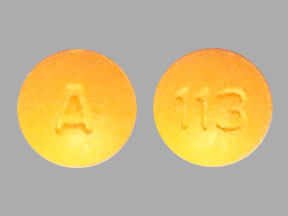
Indapamide Coupons & Savings Card – Discount Prices from $9.62
Indapamide is a medication prescribed to manage high blood pressure and reduce excess fluid in the body, commonly due to heart failure. By using this drug, you can lower your risk of strokes, heart attacks, and kidney issues. As a diuretic or "water pill," Indapamide works by increasing urine production, which helps the body eliminate extra salt and water. This action not only reduces swelling and breathlessness but also relaxes blood vessels, further assisting in lowering blood pressure. It is typically taken as an oral tablet, once daily in the morning. While generally safe, some users, particularly older adults, might experience side effects such as dizziness or weakness, which could increase the risk of falls. Indapamide is available as a generic medication, with the brand name Lozol no longer in use. Always consult with your healthcare provider before starting any new medication or treatment plan.
Our coupons are free to use. Before paying, show the pharmacist your Indapamide savings card to get your free discount. Use our filters below to edit the prescription box to match your needs. The Indapamide prices will update based on your prescription needs. Above our Indapamide coupons, you can change your location to see pharmacy prices and costs in other areas. We're here to help you buy Indapamide at the lowest price with our prescription discount card.
My prescription
Edit
1.25MG, Indapamide (90 Tablets)
Select pharmacy

CVS
$30.01
COUPON PRICE
Walgreens
$9.62
COUPON PRICE
Albertsons
$21.33
COUPON PRICE
Walmart
$47.45
COUPON PRICEIndapamide savings card
Show this card to your pharmacist
Walgreens
$9.62
BIN
ID
PCN
GRP
015995
LHKPY243149
GDC
DR33
Powered by
Indapamide is a medication prescribed to manage high blood pressure and reduce excess fluid in the body, commonly due to heart failure. By using this drug, you can lower your risk of strokes, heart attacks, and kidney issues. As a diuretic or "water pill," Indapamide works by increasing urine production, which helps the body eliminate extra salt and water. This action not only reduces swelling and breathlessness but also relaxes blood vessels, further assisting in lowering blood pressure. It is typically taken as an oral tablet, once daily in the morning. While generally safe, some users, particularly older adults, might experience side effects such as dizziness or weakness, which could increase the risk of falls. Indapamide is available as a generic medication, with the brand name Lozol no longer in use. Always consult with your healthcare provider before starting any new medication or treatment plan.
Our coupons are free to use. Before paying, show the pharmacist your Indapamide savings card to get your free discount. Use our filters below to edit the prescription box to match your needs. The Indapamide prices will update based on your prescription needs. Above our Indapamide coupons, you can change your location to see pharmacy prices and costs in other areas. We're here to help you buy Indapamide at the lowest price with our prescription discount card.
Related thiazide-like diuretics prescriptions
coupons from$17.42Save 79%
coupons from$22.77Save 14%
More prescriptions for hypertension
coupons from$226.89Save 73%
coupons from$17.71Save 92%
coupons from$7.02Save 91%
coupons from$18.60Save 74%
coupons from$66.15Save 38%
coupons from$15.56Save 75%
coupons from$20.94Save 91%
coupons from$54.77Save 48%
Related thiazide-like diuretics prescriptions
Metolazone Save 79%coupons from $17.42
Chlorthalidone Save 14%coupons from $22.77
More prescriptions for hypertension
Coreg Cr Save 73%coupons from $226.89
Nifedipine ER Save 92%coupons from $17.71
Quinapril Save 91%coupons from $7.02
Spironolactone Save 74%coupons from $18.60
Acebutolol Save 38%coupons from $66.15
Benazepril Save 75%coupons from $15.56
Enalapril Save 91%coupons from $20.94
Amiloride-hydrochlorothiazide Save 48%coupons from $54.77
Indapamide dosage forms
Use our Indapamide 1.25MG coupon with prices from $24.35 for 90 Tablets. You can also use our Indapamide 1.25MG coupon with prices from $12.15 for 30 Tablets. We have a Indapamide 1.25MG coupon with prices from $15.30 for 60 Tablets. You can use our Indapamide 1.25MG coupon with prices from $25.39 for 100 Tablets.
Dosage Quantity Price from Per unit 1.25MG 90 Tablets $24.35 $0.27 1.25MG 30 Tablets $12.15 $0.41 1.25MG 60 Tablets $15.30 $0.26 1.25MG 100 Tablets $25.39 $0.25 1.25MG 1000 Tablets $67.50 $0.07 2.5MG 30 Tablets $12.42 $0.41 2.5MG 60 Tablets $15.84 $0.26 2.5MG 90 Tablets $25.76 $0.29 2.5MG 100 Tablets $26.95 $0.27 2.5MG 1000 Tablets $67.50 $0.07
| Dosage | Quantity | Price from | Per unit |
|---|---|---|---|
| 1.25MG | 90 Tablets | $24.35 | $0.27 |
| 1.25MG | 30 Tablets | $12.15 | $0.41 |
| 1.25MG | 60 Tablets | $15.30 | $0.26 |
| 1.25MG | 100 Tablets | $25.39 | $0.25 |
| 1.25MG | 1000 Tablets | $67.50 | $0.07 |
| 2.5MG | 30 Tablets | $12.42 | $0.41 |
| 2.5MG | 60 Tablets | $15.84 | $0.26 |
| 2.5MG | 90 Tablets | $25.76 | $0.29 |
| 2.5MG | 100 Tablets | $26.95 | $0.27 |
| 2.5MG | 1000 Tablets | $67.50 | $0.07 |
